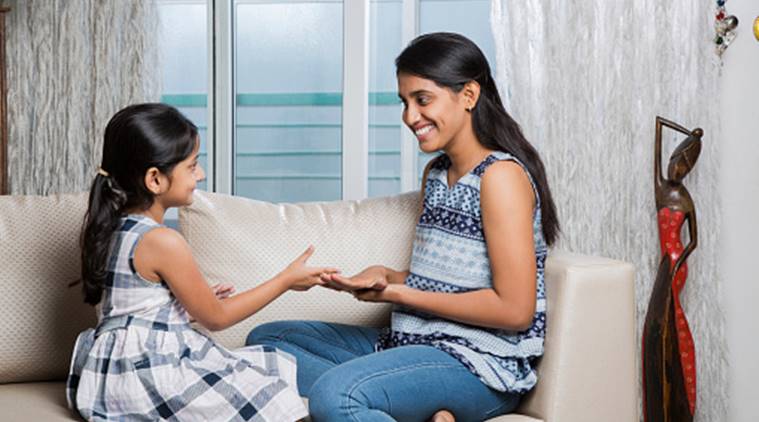Peaceful parenting doesn't encourage aggression and violence. Not only is parenting without punishment an option, but it is essential to supporting the child to make choices from a place of integrity rather than fear of disapproval or desire for reward.

By Pankaj Kumar Singh
Parenting methods which harness the power of aggression, fear and discomfort reduce a child’s cognitive capacities and leave them with an unbearable emotional load to bear, that often lasts a lifetime. The emotional instability that aggressive parenting stimulates causes further complications. High levels of stress and anxiety can lead to bodily problems such as high blood pressure, heart disease, and so on. The mental complications include depression, and a notable decrease in self-control and the ability to defer gratification.
Peaceful parenting doesn’t encourage aggression and violence. Not only is parenting without punishment an option, but it is essential to supporting the child to make choices from a place of integrity rather than fear of disapproval or desire for reward. Creating a culture of mutual respect, listening, sensitivity to each person’s feelings and diplomatic problem-solving fosters communication in the family that’s based more on integrity, respect and compassion. This approach differs from many more traditional approaches in that parents are taught to relate primarily to the feelings beneath the behaviour and to respond primarily to the feelings. Many parenting approaches focus on changing a child’s behaviour using techniques that involve time out and creating artificial consequences for the child.
Also Read| 5 rules for new age parents: Helicopter, tiger or just regular parenting?
Here are 5 useful tips that will help you become a peaceful parent:
Create safety
When your child shows you her upsets, stay calm. Don’t take it personally. The more you stay compassionate and accepting, the more he’ll feel safe enough to show you the woundedness behind his anger. Anger is just the body’s fight response to those threatening feelings. Expressing those tears and fears is healing. Once he shares them with you and he doesn’t even need to know what they’re about or to use words those feelings will evaporate, and he won’t need that chip on his shoulder to protect himself. If she’s stuck in anger, create more safety by being as compassionate as you can about what’s upsetting him. If that isn’t enough to help him cry, and he stays angry, it’s a sign that he needs more daily empathy, and more daily laughing with you. Both build trust.
Also Read| Lawnmower to Allo, have you heard of these parenting trends for 2019?
Keep setting limits
You become more flexible as you see it from your child’s point of view more often, and that’s a good thing. But you’ll still need to set plenty of limits. The key is to set the limit before you get angry, while you still have a sense of humour and can empathise with his perspective. “You wish you never had to stop playing and get ready for bed, don’t you? I bet when you grow up, you’ll play all night every night, won’t you?! And right now, it’s time for your bath.” Acknowledging your child’s perspective as you set the limit is what helps them cooperate with you.
Avoid timeouts as they create more misbehaviour
Timeouts, while infinitely better than hitting your child, are just another version of punishment by banishment and humiliation. Though they’re a more humane form of bullying than physical discipline, they leave kids alone to manage their tangled-up emotions, so they undermine emotional intelligence and erode, rather than strengthen, your relationship with your child. They set up a power struggle and they only work while you’re bigger.
Invest in building a relationship with your child
Quality time spent bonding with your child can go a long way in laying the foundation for a loving relationship. With the love and attention the child receives, not only will he or she blossom it will help build a relationship of trust enabling the child to confide in you. Done right, amidst all the fun and games this bonding time will also provide you many coachable moments where you will be able to teach your child important lessons.
Reflect on your own childhood
Many of us want to parent differently from our parents. Even those who had a happy childhood may want to change some aspects of how they were brought up. But very often, when we open our mouths, we speak just like our parents did. Reflecting on our own childhood is a step towards understanding why we parent the way we do. Make note of things you’d like to change and think of how you’d do it differently in a real scenario. Try to be mindful and change your behaviour the next time those issues come up.
(The writer is Managing Director, Jalsa Ventures Pvt Ltd, Cambridge Montessori Pre-School.)
Source: Read Full Article
